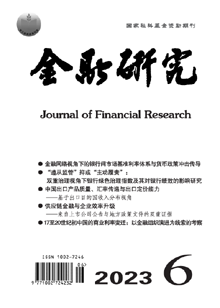经济政策的不确定性和短期逆转
IF 1.5
3区 经济学
Q3 BUSINESS, FINANCE
引用次数: 0
摘要
在本文中,我们提供了经济政策不确定性对资产定价影响的新证据。具体来说,我们发现在高epu时期,短期回报逆转更强,可能是由于不确定性导致的股市流动性下降。然而,EPU似乎对基于会计的异常没有显著影响,可能是因为这些异常不是由股票非流动性驱动的。我们的研究结果表明,EPU主要通过股票流动性影响短期资产价格。然而,EPU可能包含股票流动性以外的增量信息。此外,最新基本信息的到来可能会大大减轻EPU对短期逆转的影响。本文章由计算机程序翻译,如有差异,请以英文原文为准。
Economic policy uncertainty and short-term reversals
In this article, we provide new evidence on the impact of economic policy uncertainty (EPU) on asset pricing. Specifically, we find that short-term return reversals are stronger following high-EPU periods, likely due to an uncertainty-induced decrease in stock market liquidity. However, EPU does not appear to have a significant effect on accounting-based anomalies, possibly because these anomalies are not driven by stock illiquidity. Our findings suggest that EPU affects short-term asset prices mainly through stock liquidity. However, EPU may contain incremental information beyond stock liquidity. Moreover, the arrival of the latest fundamental information could significantly mitigate the effect of EPU on short-term reversals.
求助全文
通过发布文献求助,成功后即可免费获取论文全文。
去求助
来源期刊

Journal of Financial Research
BUSINESS, FINANCE-
CiteScore
1.70
自引率
0.00%
发文量
0
期刊介绍:
The Journal of Financial Research(JFR) is a quarterly academic journal sponsored by the Southern Finance Association (SFA) and the Southwestern Finance Association (SWFA). It has been continuously published since 1978 and focuses on the publication of original scholarly research in various areas of finance such as investment and portfolio management, capital markets and institutions, corporate finance, corporate governance, and capital investment. The JFR, also known as the Journal of Financial Research, provides a platform for researchers to contribute to the advancement of knowledge in the field of finance.
 求助内容:
求助内容: 应助结果提醒方式:
应助结果提醒方式:


